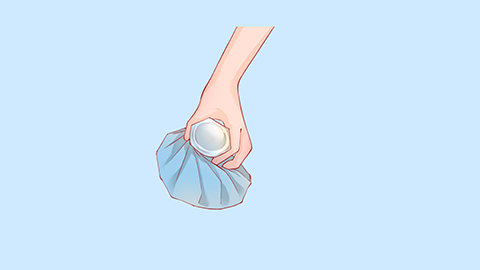Can ice packs be used for发热 in the palms and soles?
Generally speaking, whether ice compresses can be used for heat in the palms and soles depends on the specific circumstances. If the heat is caused by a hot environment or temporary warmth, applying an ice compress appropriately is usually acceptable. However, if the heat is due to disease factors, ice compresses are generally not recommended. Detailed analysis is as follows:

If the heat in the palms and soles is caused by being in a high-temperature environment, after strenuous exercise, or due to emotional stress, and there are no other physical discomforts, applying an ice compress appropriately may temporarily lower the local temperature and relieve the feeling of heat. In such cases, the ice compress should not be applied for too long—several minutes each time is sufficient—to avoid skin frostbite.
When the heat in the palms and soles is caused by disease-related factors such as internal heat due to yin deficiency or fever from infections, ice compresses are not recommended. In these situations, ice compresses may irritate the body, interfere with normal regulatory functions, and potentially worsen the discomfort. Instead, corresponding regulation or treatment measures should be taken to address the underlying cause to alleviate symptoms fundamentally.
To relieve the discomfort of heat in the palms and soles, it is advisable to maintain a well-ventilated and cool indoor environment and wear breathable, comfortable clothing. In terms of diet, avoid excessive consumption of spicy or irritating foods, and opt for bland, easily digestible foods. Drink plenty of water. Additionally, maintaining a regular routine and avoiding excessive fatigue can help maintain bodily stability.







